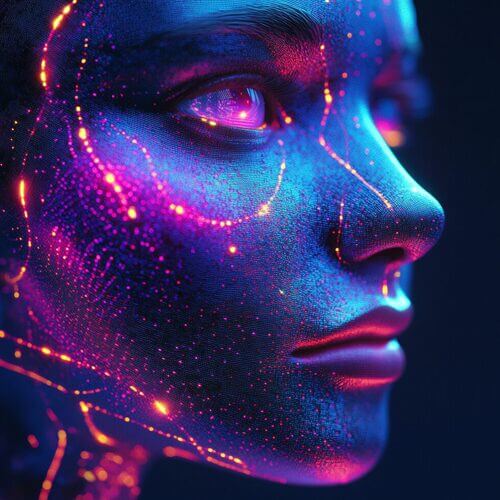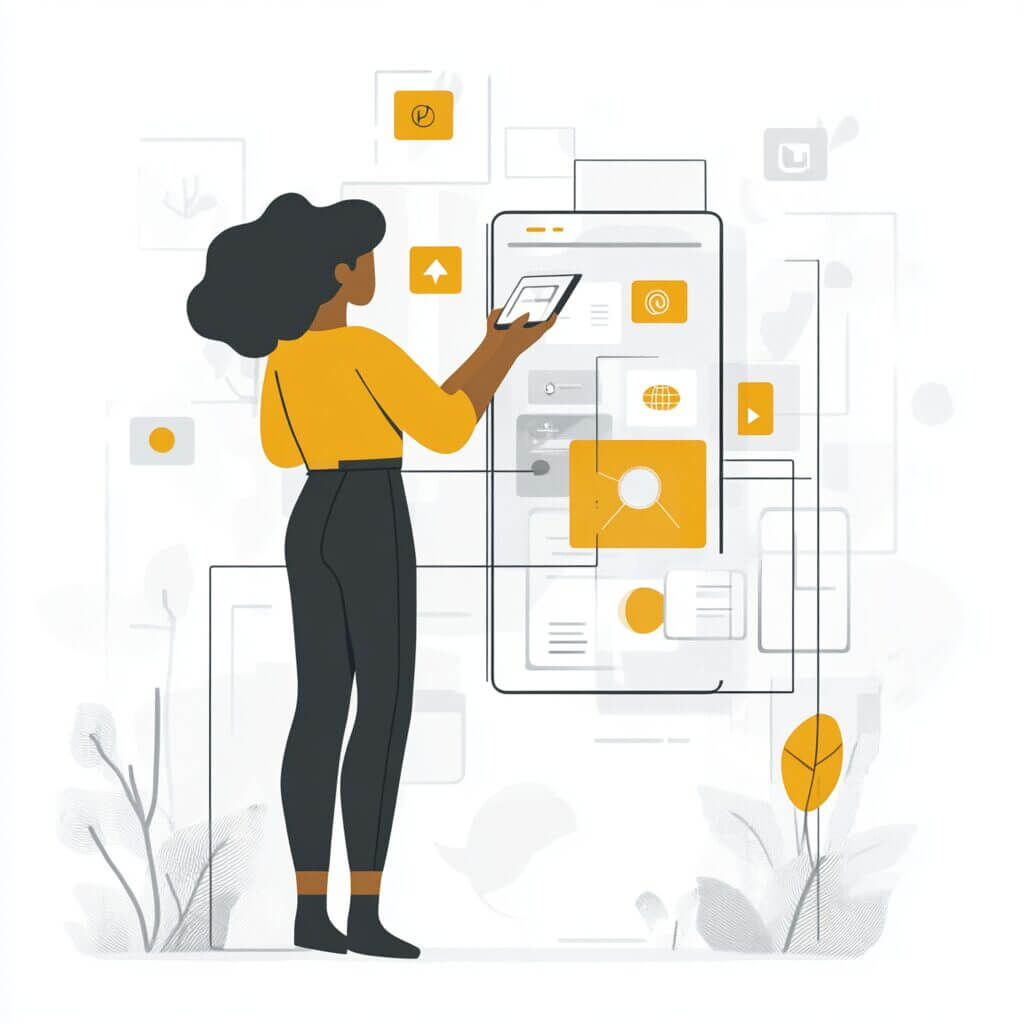How AI is Revolutionising Marketing Campaigns
Artificial Intelligence has been at the forefront of technological advancements, and its integration into marketing campaigns is no exception.
The Role Of AI, in recent years, artificial intelligence (AI) has emerged as a transformative force across a wide range of industries. The website design world is no exception, with AI becoming a pivotal tool in enhancing the user experience, optimising design workflows, and even creating websites autonomously. As AI technology continues to advance, its potential to revolutionise website design is rapidly unfolding, providing new opportunities for designers and businesses alike.

One of the most significant impacts AI has had on website design is the development of AI-driven design tools. These platforms leverage machine learning and algorithms to automate and optimise the design process.
For instance, tools like Wix’s ADI (Artificial Design Intelligence) allow users with little to no design experience to create visually appealing websites. By analysing user inputs the AI generates website layouts, designs, and content suggestions tailored to the user’s needs.
The use of AI in these tools streamlines the design process, allowing businesses to launch websites faster and more cost-effectively. It also empowers non-designers to create professional-looking websites, reducing reliance on expensive design agencies or developers. This democratisation of web design opens up new possibilities for smaller businesses and entrepreneurs who might otherwise struggle to establish an online presence.
AI has enabled an unprecedented level of personalisation in web design. With AI-powered analytics and machine learning algorithms, websites can track user behaviour, preferences, and interactions to tailor the experience accordingly. Personalised content recommendations, customised layouts, and even dynamic navigation menus can be implemented based on real-time data. This level of personalisation enhances the user experience and encourages greater engagement.
For example, e-commerce websites use AI to recommend products based on a visitor’s browsing history or previous purchases. Content-driven websites, such as news platforms, can present articles or media tailored to each user’s reading habits. This personalised approach not only boosts user satisfaction but also increases conversion rates, which is essential for businesses looking to drive sales or subscriptions.
Another area where AI is making significant strides in web design is through the integration of chatbots and virtual assistants. These AI-driven tools are capable of handling customer inquiries, providing real-time support, and guiding users through various processes, such as product selection, checkout, or troubleshooting.
User experience (UX) and user interface (UI) design are central to creating successful websites, and AI is playing an increasingly important role in optimising these elements. AI-powered tools can analyse vast amounts of data to identify trends in user behaviour, providing designers with valuable insights on how to create more intuitive interfaces.
AI is also capable of assisting in A/B testing, automatically suggesting design adjustments based on the performance of different design elements.
For instance, AI can test various color schemes, fonts, or layouts to determine which versions are most effective in terms of user engagement or conversion rates. This data-driven approach reduces the trial and error often associated with manual design adjustments and speeds up the process of fine-tuning UX/UI designs.
Another exciting development in AI’s role in website design is its ability to automate the creation and maintenance of websites. AI systems can analyse a website’s content, structure, and performance to suggest improvements or even implement changes autonomously.
For example, AI tools can scan a website for broken links, slow-loading pages, or outdated content, automatically correcting issues to ensure a smooth and up-to-date user experience.
AI is also assisting in creating websites from scratch by processing a user’s inputs (such as business information and preferences) and generating a fully functional website with appropriate design, content, and layout.
This capability could drastically reduce the time and resources needed to build and maintain websites, making it more efficient for businesses to manage their online presence.
AI’s influence extends beyond design into the realm of search engine optimisation (SEO). AI algorithms can be used to analyse the content on a website and optimise it for search engines, improving the site’s chances of ranking higher in search results. AI-powered SEO tools, such as content analysers, keyword generators, and ranking predictors, can help website owners improve their content strategies.
Additionally, AI can enhance the process of content creation by identifying the most relevant topics for a target audience or suggesting ways to optimise existing content for search engine algorithms. This integration of AI with SEO ensures that websites not only look great but also perform well in terms of visibility, driving traffic and increasing conversions.

The future of AI in website design holds even more exciting possibilities. As AI continues to evolve, we can expect to see more sophisticated design tools that integrate deeper levels of automation, personalisation, and user-centric features.
From fully autonomous website creation to AI-powered design assistants that collaborate with human designers, the future is bright for AI in the web design world.
AI’s potential in web design also opens up new opportunities for innovation, with designers and developers embracing AI tools to push the boundaries of what is possible in web aesthetics, functionality, and interactivity.
AI is reshaping the landscape of website design, making it more efficient, personalised, and user-friendly. From empowering non-designers to create stunning websites to offering insights that optimise UX/UI, AI is revolutionising how websites are designed, built, and maintained.
As AI continues to evolve, it is likely that we will see even greater integration of AI in the design process, driving a new era of creativity and innovation in web design. The intersection of artificial intelligence and website design is not just a trend – it’s the future.
Artificial Intelligence has been at the forefront of technological advancements, and its integration into marketing campaigns is no exception.
Contrast in web design goes beyond simply making elements stand out, it’s a fundamental design principle that enhances visual appeal while maintaining functionality.
A common method to gain organic traffic is to produce high quality blog posts.